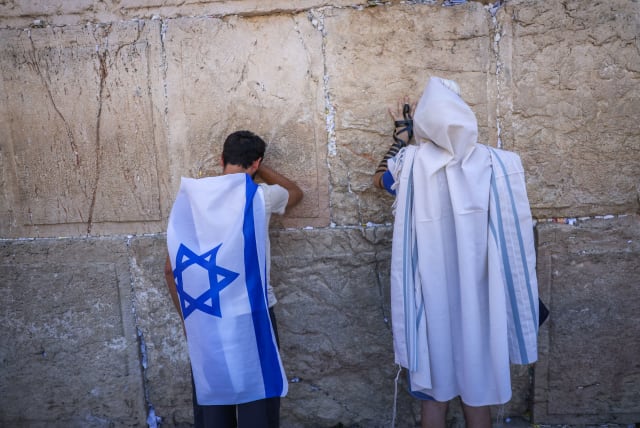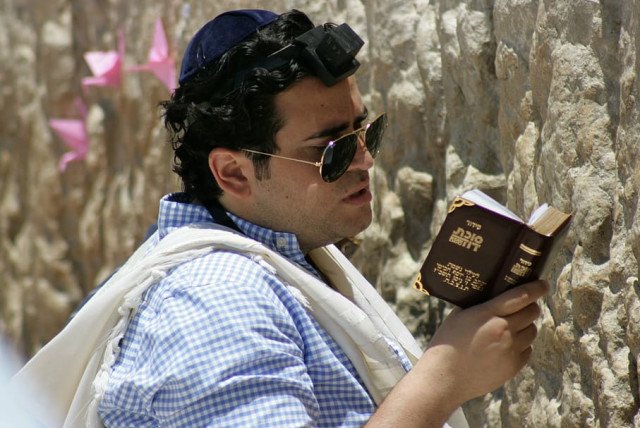Silence can lead to epic disasters in society - opinion

Self-criticism reigns supreme over self-censorship, especially in today's day and age.
Many, if not most, Israeli schoolchildren know the tragically fateful story of Kamtza and Bar Kamtza – two men in ancient Jerusalem who shared a similar name.
One time, a wealthy unnamed Jerusalemite who really liked Kamtza, yet hated Bar Kamtza, told his servant to invite the former to a feast he was throwing. Unfortunately for the party-thrower (and pretty much all Jews around at that time and ever since), the servant accidentally invited Bar Kamtza.
When the host saw that his nemesis was at the party, he became incensed, telling Bar Kamtza to leave immediately. “Let me stay, I’ll even pay for my food and drink,” Bar Kamtza pleaded, to no avail.
“Then I’ll pay for half the meal,” Bar Kamtza responded, upping the ante and begging to be allowed to stay and not be humiliated in front of the other guests.
“No,” the ungracious host replied.
“Please?! I’ll pay not only for my own food and drink or even for half the feast, but the whole thing! Just let me stay!”
The host refused, took Bar Kamtza by the hand, stood him up, and removed him from the premises.
Bar Kamtza was so peeved and humiliated that he decided to take it out on his fellow Jews. He told the Roman authorities that his co-religionists were rebelling – a disclosure that soon led to the destruction of Jerusalem and its Holy Temple, unspeakable carnage, and millennia of exile.
THERE ARE of course additional details and countless commentaries on this infamous story, yet when it is retold “off the cuff,” so to speak, a quite critical detail is often overlooked and not included in the tale.
The reason Bar Kamtza was so upset and humiliated, was not simply because the host had acted cruelly and embarrassed him in front of the other invitees, including some of Jerusalem’s most prominent people.
As the version of the story in the Talmud (Tractate Gittin 55b-56a) recounts: “After having been cast out from the feast, Bar Kamtza said to himself: Since the sages were sitting there and did not protest the actions of the host, although they saw how he humiliated me, learn from it that they were content with what he did” (translation, including Rabbi Adin Even-Israel Steinsaltz’s commentary, The Noé Edition of the Koren Babylonian Talmud).
It was, in fact, not the host’s actions that tipped Bar Kamtza over the edge, but rather the rabbis’ inaction that led him to betray his people. It was the sages’ refusal to stand up for common decency that ultimately led to the destruction of the Temple and 2,000 years of exile.
Great leaders in Judaism still have their moments of strife
Jewish tradition has never been focused on making people into saints. In fact, some of the most formative stories about some of our most important leaders – including no less than Moses and David – were not about their sinlessness, but rather about their very, very human fallibility.
It’s not surprising, then, that the story of Kamtza and Bar Kamtza – which places significant blame for the destruction of Jerusalem on the rabbis – not only survived as part of the rabbinic oral tradition for hundreds of years, but even made its way into the Talmud – an inclusion resulting from a very explicit decision by its redactors.
That value – the supremacy of self-criticism over self-censorship – is perhaps no less important than the critical lesson that in Judaism, silence is consent… and it can quite quickly and directly result in epic disaster.
The writer is a Jerusalem-based writer and publicist. He is currently senior strategist at Concrete Media, and previously served as the National Library of Israel’s international spokesman. @ZackRothbart
Jerusalem Post Store
`; document.getElementById("linkPremium").innerHTML = cont; var divWithLink = document.getElementById("premium-link"); if (divWithLink !== null && divWithLink !== 'undefined') { divWithLink.style.border = "solid 1px #cb0f3e"; divWithLink.style.textAlign = "center"; divWithLink.style.marginBottom = "15px"; divWithLink.style.marginTop = "15px"; divWithLink.style.width = "100%"; divWithLink.style.backgroundColor = "#122952"; divWithLink.style.color = "#ffffff"; divWithLink.style.lineHeight = "1.5"; } } (function (v, i) { });

